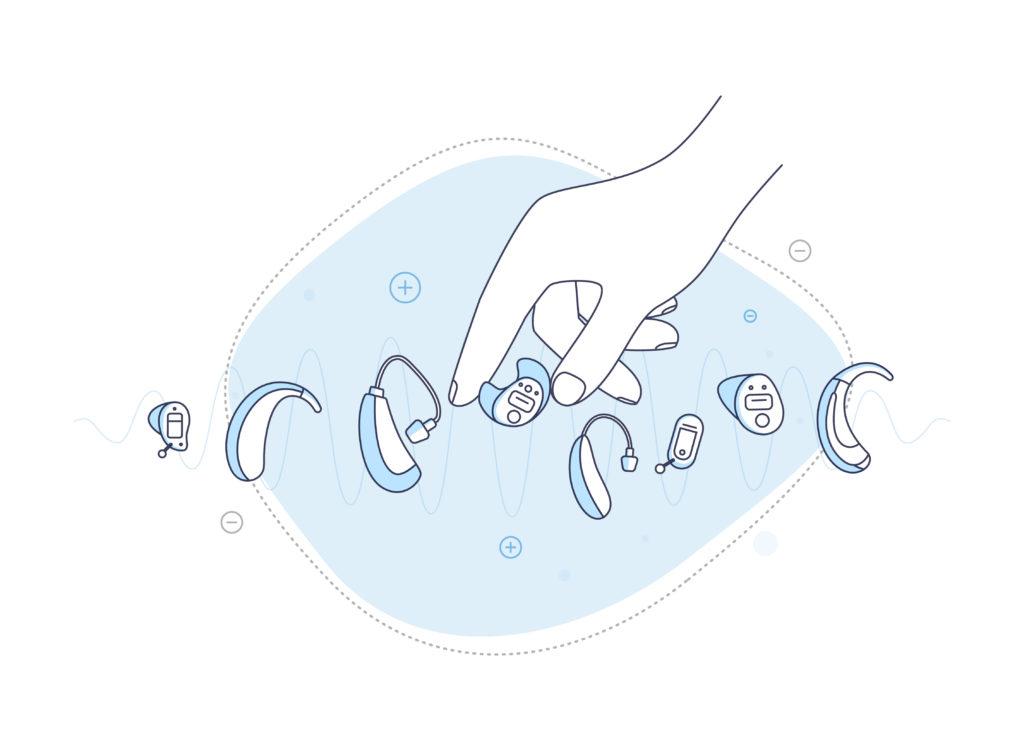MAE Audiological Services Inc Knows Hearing is Interlinked to Health
Hearing aids offer various benefits—that’s what we’re blogging about to end 2022. According to a 2020 National Center for Biotechnical Information (NCBI) study, hearing loss has become universal in the adult lifespan. The results of this study showed that, by age 100, nearly every adult has some level of hearing loss. Another NCBI study showed adults with untreated hearing loss usually rate themselves with having poor to fair health.
Adult hearing loss that goes untreated can lead to different health dangers, like increased rates of dementia, falling, and depression. While they can’t restore normal hearing, using hearing aids to combat hearing loss provides advantages like:
- Improving cognition and communication
- Boosting emotional and mental health
- Optimizing overall physical health
Hearing Aids Improve a Patient’s Cognition and Communication Ability
The most obvious benefit of hearing aids is they improve communication and cognition (the process of acquiring knowledge and understanding.) Several studies conclude that hearing loss negatively impacts adult cognition and communication. According to practicalneurology.com, one study showed an accelerated decline—30 to 40 percent—of cognition in adults with hearing loss. Since 2005, the NCBI has held that hearing loss adversely affects adults’ daily communication and lives.
How Hearing Loss Compromises Cognition and Communication
Communication is a basic element in human interaction. Many adults spend their lives primarily interacting via oral communication—speaking to each other. Hearing loss hinders oral communication; if one person can’t hear the other person, that’s a hinderance. A decline in cognition makes it harder for adults to understand what they hear in oral communications. Hearing loss burdens those resources necessary for cognition, leading to changes in the brain.
When cognition and communication become difficult activities, adults tend to suffer from isolation and loneliness. Loneliness can increase the risk of dementia by 40 percent, as indicated by a brain scan study by the NCBI. All this can result in patients developing mental health problems, such as anxiety and depression.
A Patient’s Mental Health Often Thrives from Opting for a Hearing Aid
Mental health and hearing go hand in hand. If you have hearing loss, your mental health could be in jeopardy if you don’t use hearing aids. From 2019 to 2020, Clear Living—an online hearing information provider—collected survey data addressing hearing loss difficulties among adults. Included in their findings were highlights of how hearing loss has detrimental effects on mental health. Approximately 89 percent of those surveyed cited social and personal problems before getting their hearing aids, some developing depression. About 58 percent said their relationships suffered and 39 percent claimed difficulty following or having fewer conversations, resulting in loneliness.
Hearing Aids Offer Various Benefits to Our Mental Health?
By themselves, depression and loneliness aren’t always serious concerns. Usually, both conditions are acute and manageable among adults with hearing loss and without hearing aids. However, these issues can add up to some patients experiencing mental health problems like anxiety, depression, delirium, dementia, and hallucinations.
Anxiety
Though no study directly links anxiety to hearing loss, it’s common sense that one feels anxious if unable to hear. Patients with hearing loss often get anxious about not hearing something important or misunderstanding someone and getting embarrassed. If a person with hearing loss and without hearing aids frequently suffers from anxiety, it could lead to an anxiety disorder. The Hearing Journal reports that adjustment disorder with anxiety is common among individuals with hearing loss:
Depression
We’ve already established that hearing loss can result in isolation and loneliness. Both of those factors often develop into depression. In 2014, the National Institute on Deafness and Other Communication Disorders (NIDCD) linked hearing loss and depression in adults. In 2019, another study concluded that one in five adults with hearing loss have symptoms of clinical depression.
Delirium
Delirium is simply severely confused thinking and decreased awareness of one’s environment. It’s mostly acute, not usually lasting for more than a few days. According to the Mayo Clinic, delirium is common among older adults, especially those with hearing loss.
Dementia
According to a Johns Hopkins study, hearing loss may actually cause dementia in some cases. How so? Less input from sensory organs like the ears can decrease cognition. When the brain works harder, it strains to hear and fills in the gaps.
Hallucinations
Per an article in The Hearing Journal, auditory hallucinations affect one-third of people with hearing loss. Sometimes the hallucinations coincide with a tinnitus diagnosis. If tinnitus isn’t diagnosed, hallucination symptoms could include hearing buzzing, music, or voices.
Having a Hearing Aid Also Benefits a Patient’s Overall Physical Health
In addition to benefiting a person’s mental health, having hearing aids can actually improve physical health too. From 2003 to 2013, the NCBI studied the mental and physical health of 4,000 British men ages 63 to 85. They found those with hearing loss and without hearing aids had greater risks of cardiovascular problems. Also, according to the Journal of the American Geriatrics Society (JAGS), using hearing aids delays injurious falls among elderly adults.
Not falling down a lot certainly benefits one’s physical health! Furthermore, Audiologist and USF Professor Harvey Abrams, PhD, regularly studies hearing aids’ effects on adults’ overall quality of life. In his research, Abrams found that low-frequency hearing loss correlated with risks associated with strokes, vascular diseases, and heart attacks.
For more information on hearing aids and hearing evaluations, call MAE Audiological Services Inc at (724) 527–2228. Except for Thursdays and weekends, we are open 9 a.m. to 4 p.m. We are happy to explain how hearing aids offer various benefits.
